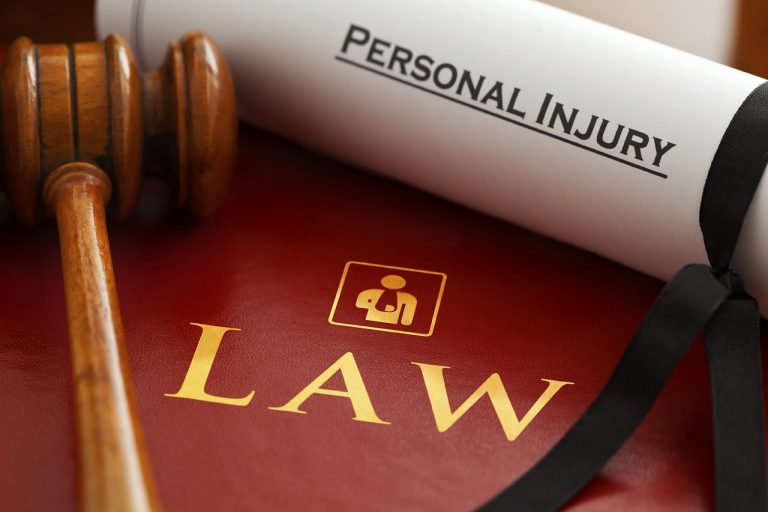Personal injuries can occur in various situations, ranging from car accidents and slip-and-falls to medical malpractice and product defects. When someone suffers harm due to the negligence or wrongful actions of another party, they may have the right to pursue compensation through a personal injury claim. However, it’s essential to be aware that there are time limits, known as statutes of limitations, for filing personal injury claims. These statutes vary by state and depend on the type of injury and the circumstances of the case. In this article, we’ll explore the importance of statutes of limitations in personal injury cases and discuss the time limits for filing a personal injury claim in different scenarios.
Story Stages
Understanding Statutes of Limitations
Statutes of limitations are laws that set a deadline for initiating legal proceedings in civil cases, including personal injury claims. These deadlines are designed to ensure that legal disputes are resolved promptly and efficiently, while also protecting the rights of defendants to defend themselves against stale claims. Statutes of limitations vary by jurisdiction and depend on the type of legal claim being pursued. In personal injury cases, statutes of limitations typically begin to run from the date of the injury or the date the injury was discovered or should have been discovered through reasonable diligence.
Importance of Timely Action
Failing to file a personal injury claim within the applicable statute of limitations can have serious consequences for the injured party. If the deadline passes, the injured party may lose the right to seek compensation for their injuries and losses, as the court may dismiss the case as time-barred. This means that even if the injured party has a strong case with compelling evidence of negligence or liability, they may be unable to recover damages simply because they waited too long to file their claim. Therefore, it’s crucial for injured individuals to take prompt action and consult with a personal injury attorney to ensure they preserve their right to pursue legal action within the applicable time frame.
Time Limits for Various Types of Personal Injury Claims
The time limits for filing a personal injury claim can vary depending on the type of injury and the laws of the state where the injury occurred. Below are some common types of personal injury claims and their corresponding statutes of limitations:
Car Accidents
In cases of car accidents, the statute of limitations for filing a personal injury claim typically ranges from one to three years, depending on the state. Some states have specific deadlines for filing claims against government entities or in cases involving uninsured or underinsured motorists. It’s important to consult with a personal injury attorney to determine the applicable deadline for your car accident claim based on the laws of your state.
Slip-and-Fall Accidents
In slip-and-fall accidents and other premises liability cases, the statute of limitations for filing a personal injury claim also varies by state and can range from one to six years. It’s essential to act quickly to gather evidence and document the conditions of the property where the accident occurred to support your claim.
Medical Malpractice
Medical malpractice claims involve allegations of negligence or misconduct by healthcare providers, such as doctors, nurses, or hospitals. The statute of limitations for medical malpractice claims is typically shorter than other types of personal injury claims and can range from one to three years, depending on the state. Some states also have specific rules for providing notice of intent to file a medical malpractice claim before the statute of limitations expires.
Product Liability
Product liability claims arise when defective or dangerous products cause injuries to consumers. The statute of limitations for product liability claims varies by state and can range from one to ten years, depending on the type of defect and the circumstances of the case. It’s important to consult with a personal injury attorney who specializes in product liability claims to determine the applicable deadline for your case.
Wrongful Death
In cases of wrongful death, where a person’s death is caused by the negligent or wrongful actions of another party, the statute of limitations for filing a wrongful death claim is typically shorter than other types of personal injury claims. The deadline for filing a wrongful death claim varies by state and can range from one to three years from the date of death or the date the cause of death was discovered.
Extensions and Exceptions to Statutes of Limitations
In some cases, statutes of limitations may be extended or tolled (suspended) under certain circumstances. For example, if the injured party is a minor or has a legal disability at the time of the injury, the statute of limitations may be extended until they reach the age of majority or the disability is removed. Additionally, statutes of limitations may be tolled if the injured party is unaware of their injuries or the identity of the responsible party due to fraud, concealment, or other factors. However, it’s essential to consult with a personal injury attorney to determine if any exceptions or extensions apply to your case.
The Statute of Limitations Plays A Crucial Role In Personal Injury Cases
Statutes of limitations play a critical role in personal injury cases by setting deadlines for filing legal claims and ensuring that disputes are resolved in a timely manner. Failing to file a personal injury claim within the applicable statute of limitations can result in the loss of the right to seek compensation for injuries and losses.
Therefore, it’s essential for injured individuals to be aware of the time limits for filing a personal injury claim in their state and to take prompt action to protect their rights. If you’ve been injured due to the negligence or wrongful actions of another party, don’t delay—consult with a personal injury attorney in Westchester County as soon as possible to ensure you meet the applicable deadline and preserve your right to pursue legal action.
